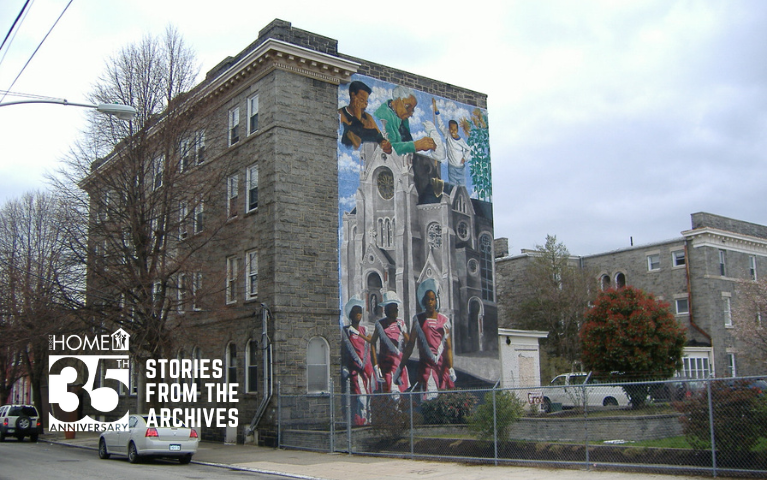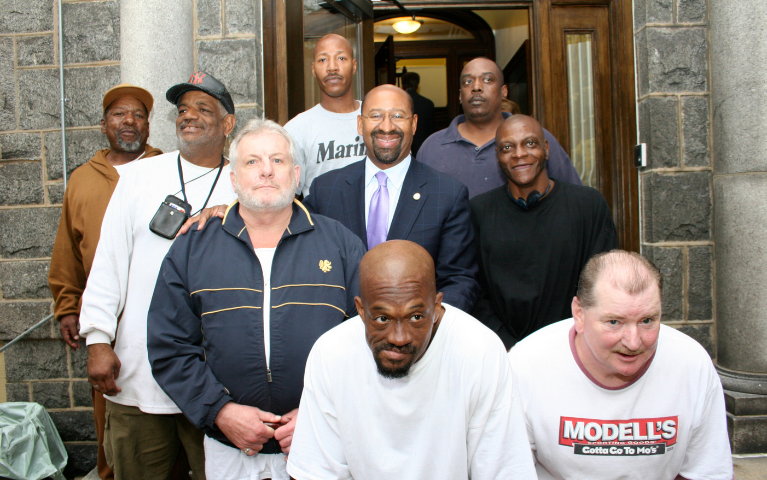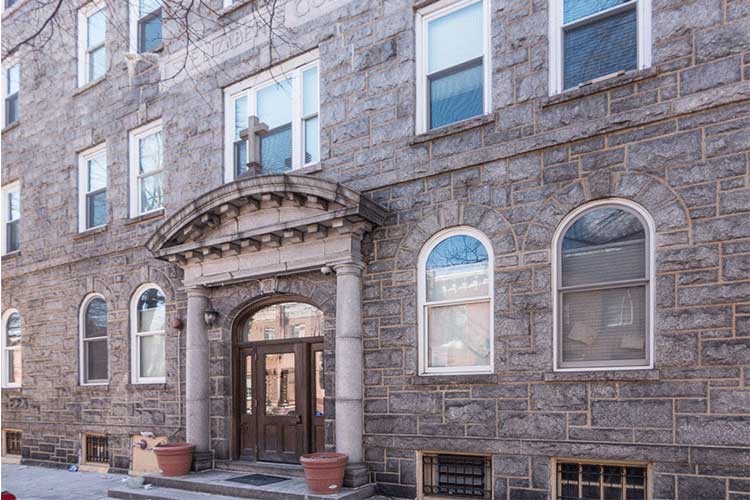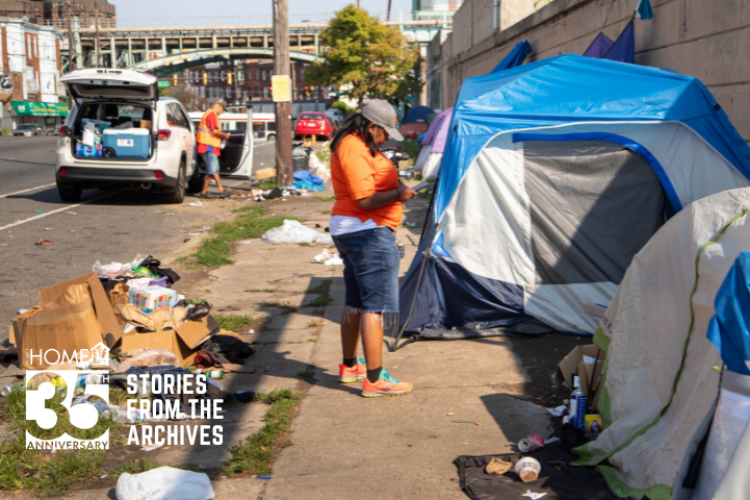Stories From The Archives: Recovery In Residence

During our 35th anniversary year, we are digging into our deep archives to share stories from our past that highlight some of the many milestones we have celebrated over our nearly four decades of service to Philadelphia.
Back in 2005 we detailed the history of our St. Elizabeth's Recovery Residence in North Philadelphia.
...
Recovery was a part of Project HOME from our earliest days. Many of the men in our first emergency winter shelter back in 1989 struggled with severe addictions, and it was abundantly clear that for them, overcoming the cycle of homelessness was impossible without recovery.
In 1991, we hired a staff addictions counselor to work with the residents at our various sites. But we soon recognize a greater need. In 1993, we began planning for a recovery residence to meet the needs of homeless men. We identified the former convent of the St. Elizabeth’s parish in lower North Philadelphia, at a time when the parish was closing down.
Initially, the building served as temporary housing for men from our Diamond Street transitional residence, which was being renovated. By late 1993, with funding from the City of Philadelphia’s Office of Housing and Community Development, ARCO Chemical Company, and the Sisters of Saint Francis, we were able to open the recovery residence.
Before opening the residence, Project HOME engaged in extensive dialogue with neighbors. Sister Mary Scullion, our executive director, agreed to live at the residence to alleviate some of their concerns. As we got to know our neighbors, they shared with us their vision of needs and possibilities for the community – including an after school program, a ceramics class, and a drill team for the youth.
Those relationships planted the seeds of what would eventually become a comprehensive community revitalization program. In effect, we made a commitment to help the neighborhood recover. The residents themselves helped in the development of the program. Through their hard-earned wisdom, they helped us develop a rigorous and highly structured, multi-leveled program that would provide serious opportunity for recovery.
Currently, the St. Elizabeth’s Recovery Residence offers 24 single-room-occupancy units for men who are homeless and have a substance-use disorder (and in some cases also have a mental illness). Residents receive counseling and comprehensive case management with a focus on mental health/drug and alcohol treatment, education, employment, physical health services, and overall healing. The length of stay varies depending on individual needs although generally ranges from 9 to 12 months, during which time residents participate in groups and meetings at the residence as well as in outpatient treatment.
The program is highly structured and demands that residents are ready and motivated to overcome their addiction. Not infrequently, a homeless man comes into St. E’s, who is not ready for recovery – and invariably, he is soon gone. But many others come in and immediately feel a sense of dignity and respect – and they begin the arduous but critical work of the recovery program.
When they fully graduate from the program, the men may move on to one of Project HOME’s permanent housing facilities or to their own place.

“St. Elizabeth’s meant a new way of life to me,” says Anthony, a former resident of St. Elizabeth’s who now lives independently and works full time at the Back Home Café. [ed. note: the Back Home Café was an early foray into supportive employment, now closed, that is mirrored now by our Social Enterprise programs.] “It helped me to build my self-esteem. It gave me motivation to work hard and to be grateful for everyday that I wake up.”
St. E’s is about to undergo major renovations, after which it will offer six accessible units for persons with impaired mobility and six units equipped for persons with impaired hearing/vision. Also, thanks to generous support from the U.S. Department of Veterans Affairs, St. E’s will target homeless veterans in need of recovery. A grant from the Pennsylvania Housing Finance Agency is also helping make renovation of St. E’s a reality.

